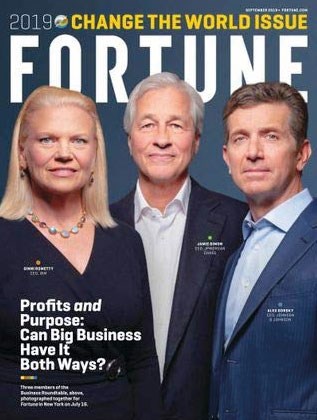That same year, you organized a CEO gathering at the Vatican. How did that come about?
We were in a conversation with the Vatican that started with then-Time CEO Joe Ripp. He had a contact here in New York, Monsignor Hilary Franco, who was the Vatican representative to the UN. Msgr. Franco let it be known that the Pope was interested in talking to CEOs. I said, “We can make that happen.”
For context, Fortune has been running something called the Fortune Global Forum for almost 20 years. Initially it was every three years and in China. When I got here, I made it every year, and we started doing it in other places as well. So now, we decided to do one at the Vatican. This one, though, was unique in structure, in that we had CEOs go off in working groups, each to address a particular problem. For instance, what can the private sector do to help climate?
We did working groups of about 20 CEOs on water, on health, on climate change, on employee training. They came up with things the private sector can do. We finished on a Friday and had our recommendations translated and taken that night to the Pope. The next morning, we met with the Pope, who had read the recommendations.
They initially told us he was just going to stay there for a few minutes. But he was impressed enough by the recommendations that he took the time to greet each of the CEOs individually. It was a cool event. In the surveys we did afterward, the CEOs all said, “This is really important. We are at an important moment in the history of business and capitalism. We all have to figure out how to do this better. And if you can keep this going in some way, it would be valuable to us.”
That was in December of 2016. The next month, in January, we hosted a dinner at Davos to talk about how to keep the momentum going. There we launched what we called the Fortune CEO Initiative, basically a forum for CEOs who are committed to addressing major social problems as part of their core business. At that dinner, Marc Benioff (Salesforce CEO) stood up and said he would sponsor this new effort. The CEO Initiative had its first meeting in New York the next June. Jamie Dimon was part of that. Then the next year we were in California. Tim Cook was part of that.
So the CEO Initiative grew out of the Vatican meeting. It put us on the map for what the Business Roundtable was thinking about, which is why they came to me when they were planning the statement.

Fortune's 2019 Change the World issue was timed with the Business Roundtable, and featured Ginni Rometty, Jamie Dimon and Alex Gorsky on the cover.

